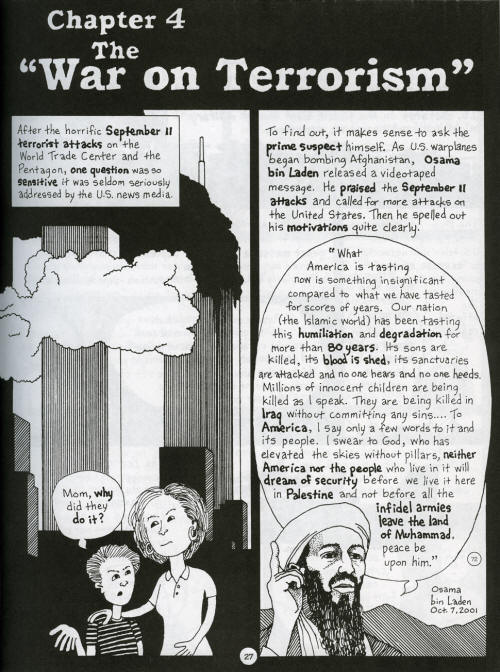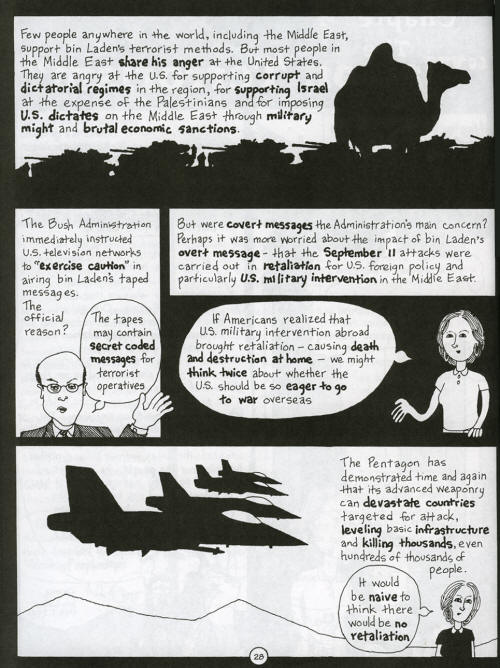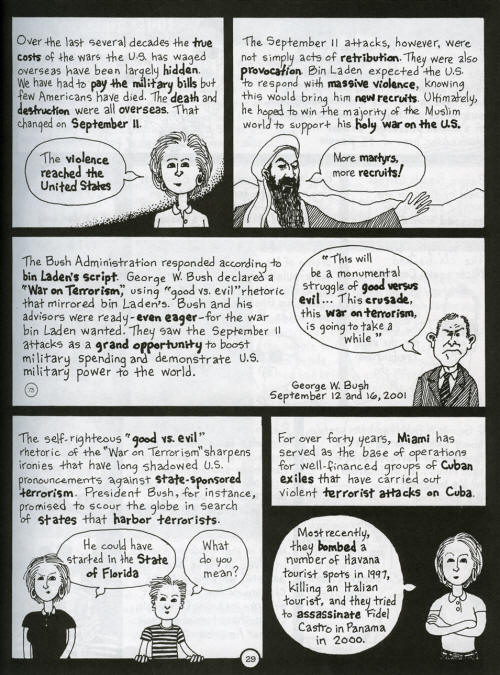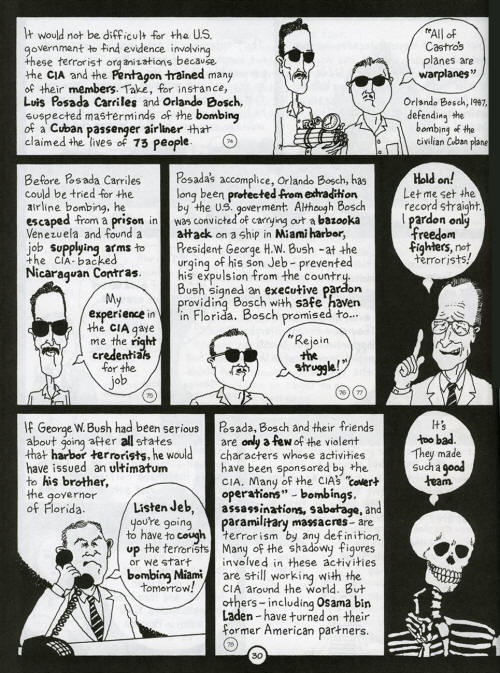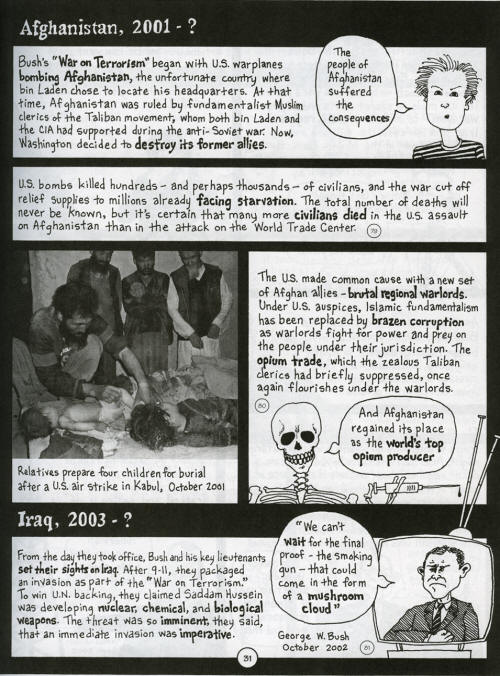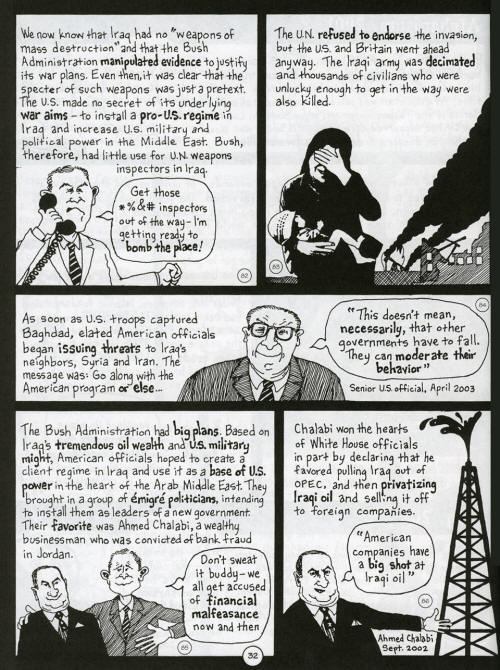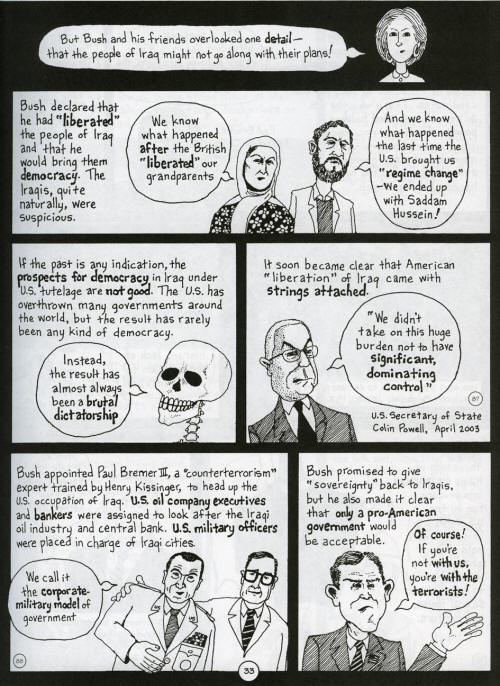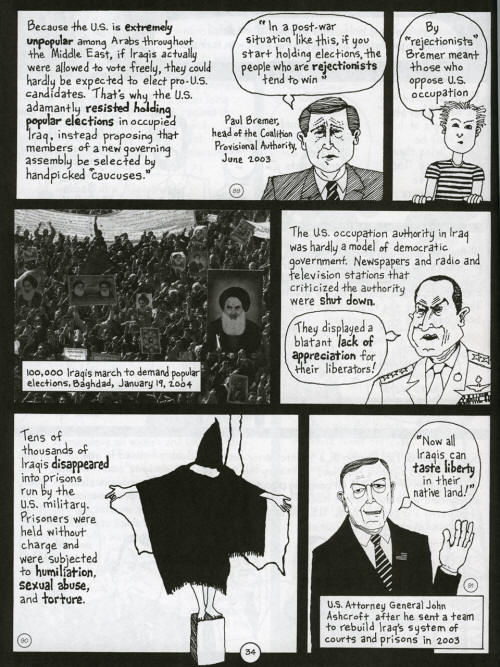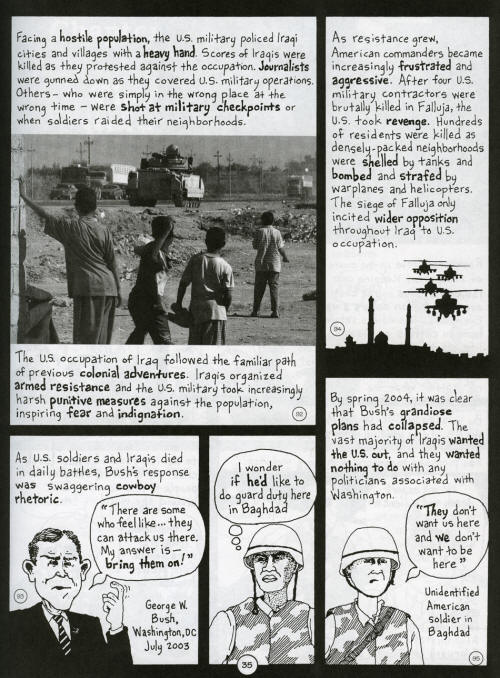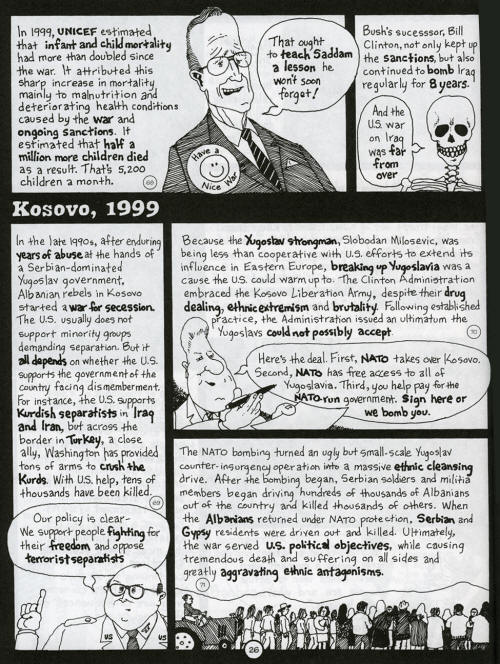
In 1999, UNICEF estimated that infant and child mortality had more than doubled since the war. It largely attributed this sharp reversal in mortality trends to malnutrition and deteriorating health conditions caused by the war and ongoing sanctions. It estimated that half a million more children died as a result. That's 5,200 children a month. [68]
[Bush H.W. Bush:] That ought to teach Saddam a lesson he won't soon forget! -- Have a Nice War.
Bush's successor, Bill Clinton, not only kept up the sanctions, but also continued to bomb Iraq regularly for 8 years.
And the U.S. war on Iraq was far from over.
Kosovo, 1999
In the late 1990s, after enduring years of abuse at the hands of a Serbian-dominated Yugoslav government, Albanian rebels in Kosovo started a war for secession. The U.S. usually does not support minority groups demanding separation. But it all depends on whether the U.S. supports the government of the country facing dismemberment. For instance, the U.S. supports Kurdish separatists in Iraq and Iran, but across the border in Turkey, a close ally, Washington has provided tons of arms to crush the Kurds. With U.S. help, tens of thousands have been killed. [69]
[U.S. General says:] Our policy is clear -- We support people fighting for their freedom and oppose terrorist separatists. [75]
Because the Yogoslav strongman, Slobodan Milosevic, was being less than cooperative with U.S. efforts to extend its influence in Eastern Europe, breaking up Yugoslavia was a cause the U.S. could warm up to. The Clinton Administration embraced the Kosovo Liberation Army, despite their drug dealing, ethnic extremism and brutality. Following established practice, the Administration issued an ultimatum the Yugoslavs could not possibly accept. [70]
Here's the deal. First, NATO takes over Kosovo. Second NATO has free access to all of Yugoslavia. Third, you help pay for the NATO-run government. Sign here or we bomb you.
The NATO bombing turned an ugly but small-scale Yugoslav counter-insurgency operation into a massive ethnic cleansing drive. After the bombing began, Serbian soldiers and militia members began driving hundreds of thousands of Albanians out of the country and killed thousands of others. When the Albanians returned under NATO protection, Serbian and Gypsy residents were driven out and killed. Ultimately, the war served U.S. political objectives, while causing tremendous death and suffering on all sides and greatly aggravating ethnic antagonisms. [71]

